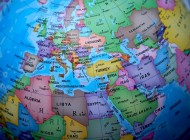The International Women’s Day was put in place to commemorate the struggles and achievements of the female gender globally and also abolish gender inequality, with a view to emancipate women from the physical and mental slavery originating from the male-dominated society. March 8 is set aside every year for this purpose and it’s an official holiday in countries such as Moldova, Burkina Faso, Cambodia, Madagascar, Eritrea, Ukraine, Guinea-Bissau, Uganda, Vietnam, Zambia, Georgia, Cuba, Belarus and others.
While many would believe that the advocacy for gender equality has gained grounds in many climes with the proliferation of women in male-dominated areas such as politics and business, the increasing global cases of violence against women, discrimination and wage disparities should be of utmost concern.

Like every other year, 2017 witnessed thousands of rallies, demonstrations, conferences, exhibitions and protests globally. Many cities in countries like Australia, Japan, Iceland, India, Lebanon, Indonesia and the UK saw women trooping out in their thousands to mark the day and press home their demands.
The 2017 theme for International Women’s Day celebration – “Women in the Changing World of Work: Planet 50-50 by 2030” – focused on women empowerment in the ever-evolving workplace and the challenges faced by women with respect to gender pay gap and also the opportunities created by new technologies. At an event organized by UN-women in New York, the UN Secretary-General, Antonio Guterres commented on how women’s rights were being reduced, restricted and reversed in a male dominated leadership sphere, he advocated change by empowering women at all levels, enabling their voices to be heard and giving them control over their own lives and over the future.
To mark the day governments of some countries reiterated their commitments towards gender equality as protests were held to challenge the status quo with respect to wage disparity in Australia. On one hand, Iceland reeled out plans in solidarity with women to introduce The Equal Pay Standard to eradicate the gender gap by 2022. On the other hand, according to Workplace Gender Equality Agency, the national gender pay gap in Australia is 16.2%, in other words, workers in female-dominated industries earn lower than their male-dominated industries even with the same qualifications. Due to this underpayment believed to be aimed at women, Childcare workers in Australia staged a massive strike action in Melbourne on March 8 to mark the International Women’s Day. According to Margret Carey, the director of the Clovelly Child Care Centre in Sydney:
The action had been planned to coincide with International Women’s Day so that it is clear we believe that our poor pay is directly related to it being a female-dominated sector. An early childhood teacher comes in at $25 an hour. If we want to reflect the true professionalism involved in our job now, we need to pay it properly, we are working poor. (Abc News, 2017)
Also, women in Poland protested against gender discrimination and advocated reproductive rights. In the same vein, Lebanese women, on International Women’s Day, stood against a lack of adequate political representation, domestic abuse and a penal code which fails to adequately punish perpetrators of rape. Furthermore, the UK’s Department for International Development Secretary, Priti Patel challenged women to venture more into politics, in a video, she said:
We all know that women are part of the solution; that women’s participation in education, health, politics, and peace building increases the chances of a more prosperous and stable future. Yet we must also remain alive to many challenges that still come before girls and women to have an equal part in this story. So we stand with them all, in every way. (Kilpatrick and John, 2017)
In all, the International Women’s Day witnessed many activities in major cities around the world. The results of past and current agitations has been encouraging, for instance, the Japanese Prime Minister, Shinzo Abe has proposed increasing government day-care centres and extending unpaid maternity leave to a maximum of 3 years, also women in Italy can now access the country’s museums and cultural sites where exhibitions relating to the female folk are held, free-of-charge.

Tags: equal rights equality gender equality international women's day march march 8th national women's day rally women women's march women's rights








